The week ahead in Parliament
- Published
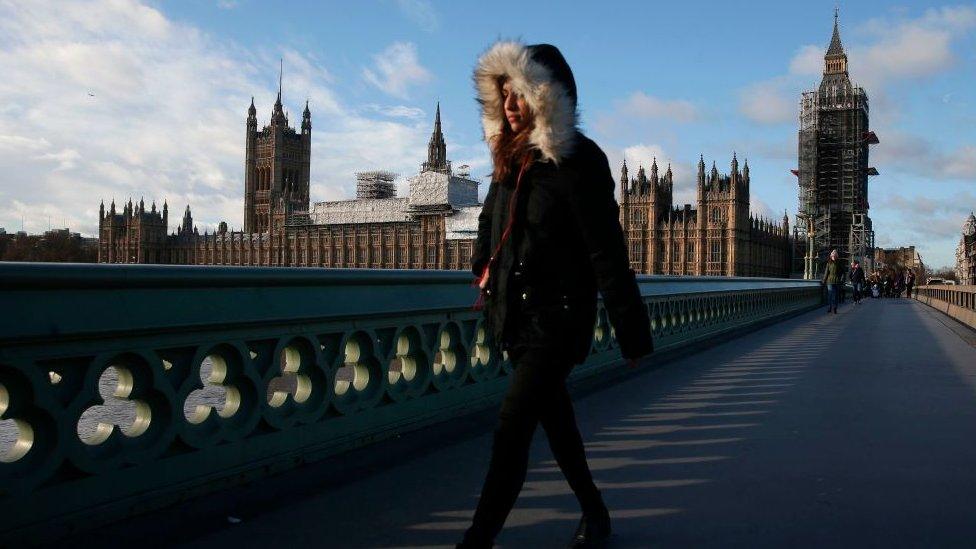
So farewell. Then. European Union (Withdrawal) Bill. Having cleared the Commons on Wednesday, this key piece of Brexit legislation now heads off to the Lords, where the rasp of legislative knives being sharpened is already audible.
Look out for reports from normally staid bodies like the Lords Delegated Powers Committee, and the Constitution Committee, which have already criticised the Bill and will almost certainly weigh in again.
Peers have their second reading debate on Tuesday 30 January, and as I write 82 noble Lords have put their names down to speak. That total is bound to increase, so it is just as well that the debate will extend across two days, and I would not be surprised if the House authorities also decided on an earlier kick-off, at 11 or 11.30am.
Incidentally, the one thing that will not happen is the Lords blocking the bill - either at second reading or later on. At least one serious Lords player is preparing a bucket of ice water to pour over the next journalist who asks if peers will block Brexit.
The game will be more subtle than that, and the real action will start when peers vote in earnest on amendments to the bill. There may be a few attempts at what is expected to be an extra-long committee stage, starting after the February recess, but that will just be a preliminary skirmish.
Most of the serious action will come at report stage, after Easter, and the expectation is that pro-EU peers will load the bill with every booby trap their fertile minds can devise.
Peers have been warming up by defeating the government on amendments to the Sanctions and Anti-Money Laundering Bill, and the Data Protection Bill. Anyone who doubts their determination to block Henry VIII powers for ministers should read the speech by Lord Judge, the former Lord Chief Justice of England, who, unwearied by decades of jokes about nominative determinism, led one of this week's rebellions on the powers given to ministers on money laundering offences.
The result, somewhat further down the track, will be a bout of parliamentary ping-pong between the Lords and Commons, possibly extending to the verge of the Whitsun recess. Peers who want to press amendments will be emboldened, because the government does not have a Commons majority and could not easily resort to over-riding them with the Parliament Act. The government's majority could be in danger on some issues. Watch out for the provisions on devolved powers, where Scottish Conservative MPs could find themselves in a very awkward position.
But with the EU (Withdrawal) Bill off the table, what will be occupying MPs and peers next week? It's a rather scrappy Commons week, with MPs polishing off a number of relatively uncontroversial bills. So the main interest will come from whatever statements and urgent questions pop up in response to events, dear boy...
In the Lords, it will be all quiet on the legislative front, with actual votes unlikely this side of the February half term. But watch out for a couple of internal points; first the possible announcement of a raft of new (mostly Conservative) peers, who the government will want introduced, blooded and ready to vote their way, by the time the EU Withdrawal Bill reaches committee.
Secondly, the election of a new Labour chief whip to replace Lord Bassam. The runners here are Lord Kennedy of Southwark, a long-term Labour Party official, Lord Tunnicliffe, the current deputy chief whip and Lord McAvoy, a legendary Commons whip. Getting the right person matters a lot, because an ability to sense the currents, customs and unwritten conventions of the Upper House is essential in building the cross-party alliances required to win votes and defeat the government.
Here's my rundown of the week ahead:
Monday
The Commons opens (2.30pm) with Housing, Communities and Local Government questions - which will include the debut of the new Housing Minister, Dominic Raab. As usual any urgent questions or ministerial statements will follow at 3.30pm. Might that include the prime minister reporting back on her meeting with President Macron?
Then comes the second reading of the Financial Guidance and Claims Bill, which merges three financial advice bodies, with the aim of providing a more efficient service. The bill has already been through the Lords where peers pushed through an amendment giving the secretary of state the power to ban cold calling.
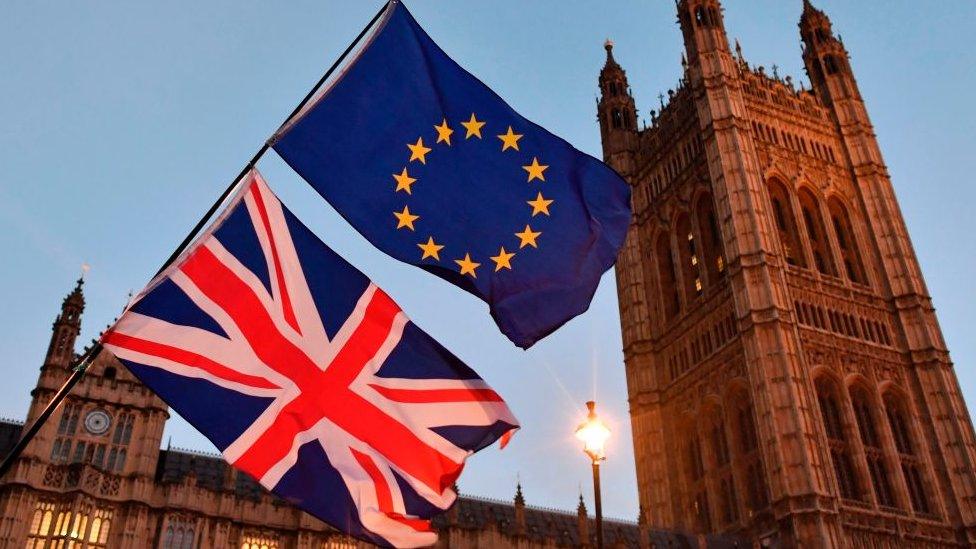
In Westminster Hall there's a petitions committee debate on E-petition 200165, external, calling for an immediate exit from the EU. The petition attracted 136,068 signatures. The debate will be led by pro-Brexit Conservative Paul Scully, who has now opened at least four debates on Brexit related petitions, in his role as a member of the Petitions Committee.
My committee pick is the Transport hearing (4.45pm) on the decision to postpone a series of rail electrification programmes, including the Midland Mainline. The Committee has recalled Chris Grayling, because it is not satisfied with the answers he has given in earlier evidence sessions.
In the Lords (2.30pm) questions to ministers include the former leader of the House Baroness Stowell of Beeston asking for a review of the legality of non-disclosure provisions in settlement agreements - she is concerned that NDAs can be used to cover-up wrongdoing, including sexual harassment or abuse, and she has particular concerns about their use in the public sector. Then there's the Conservative historian, Lord Lexden, on reviewing the law on naming deceased individuals against whom criminal allegations have been made.
Then peers will rattle through a series of nine orders and regulations on subjects from access to higher education, to giving powers to devolved governments to on the placement of refugee children. Finally, there will be a short debate on progress in establishing the role of the Small Business Commissioner and supporting small and medium-sized enterprises, which has been tabled by Lord Mendelsohn.
Tuesday
The Commons (11.30am) business opens with Justice questions.
In the day's Ten Minute Rule Bill, the Conservative Paul Scully wants to introduce a system to guarantee safety standards on the one unregulated mode of transport in London, pedicabs. His bill would deal with the vetting of drivers and the safety of their machines. It has cross-party support from all the parties represented in London, and from Transport for London. It's very much an opening bid, but could presage government legislation to deal with the issue.
After that, MPs polish off the remaining stages of debate on the Nuclear Safeguards Bill and then vote on the Lords amendments to the Telecommunications Infrastructure (Relief from Non-Domestic Rates) Bill, which should be a rubber-stamping exercise, because all of the changes made there had government approval.
In Westminster Hall the Labour MP Catherine West leads a debate on skills devolution in England (9.30 am) - she's one of a number of Labour MPs arguing that skills policy should be decentralised, making it more flexible for the regions. In London, she will argue that the system should have oversight from the Mayor's office and the GLA, and she will warn that after Brexit, a more responsive skills system will be essential.
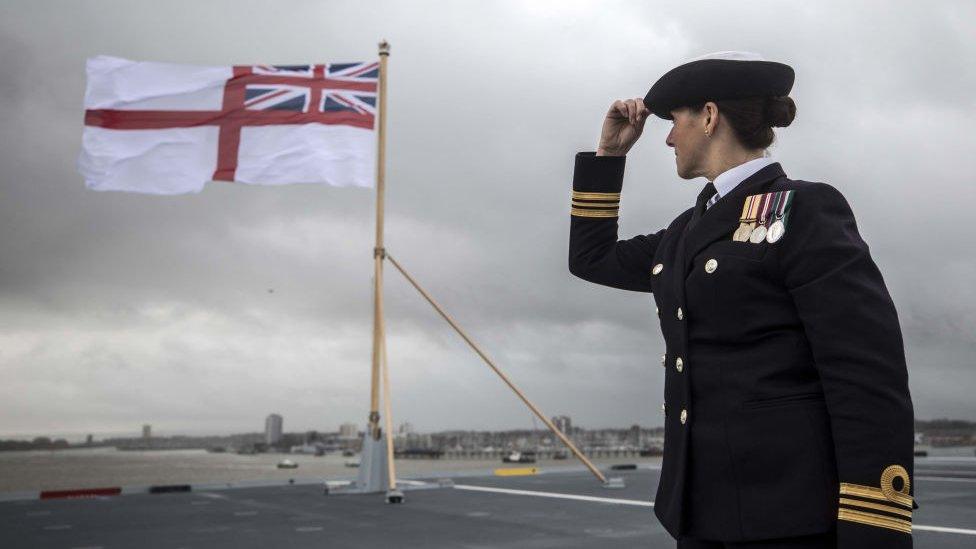
The Plymouth MP Luke Pollard's debate on Shipbuilding strategy (2.30 - 4.00pm) is another attempt to push the government into finding more money for defence - a cause that will resurface on Wednesday (see below). The focus is on the government's shipbuilding plans for the Royal Navy and the Royal Fleet Auxiliary; will it pare down the number of new frigates planned? Will planned support vessels be outsourced to South Korea?
Mr Pollard is vice chair of the All Party Group on Shipbuilding - and there is quite a cross party alliance behind this cause, including, crucially, the DUP. The new Defence Procurement Minister Guto Bebb will answer the debate in his first outing in this role - but the real target of the speeches will be the chancellor and the prime minister.
Other debates cover reform of stamp duty (4.00pm) and democracy in Hong Kong (4.30pm)
In the Lords (2.30pm) question time covers putting folic acid into flour to reduce pregnancies affected by neural tube defects and robberies and assaults by gangs on scooters or mopeds.
Then comes a committee stage debate on the detail of the Laser Misuse (Vehicles) Bill and short debates on problems faced by museums and galleries in England, and the European Union Committee report on "Brexit: the Crown Dependencies".
Wednesday
The Commons opens (11.30am) with Scotland questions followed at noon by Prime Minister's Questions.
The SNP's Alan Brown has a Ten Minute Rule bill on multi-employer pension schemes - the background to this was the revelation that the multi-employer scheme operated for plumbers in Scotland and Northern Ireland, (SNIPEF) is having to advise some members that they owe hundreds of thousands of pounds and some over £1 million due to the perceived black hole in their pension fund. However, this is as much to do with changes in legislation to the 1995 Pension Act and how the debt is calculated. And the debt includes "orphan debt" - debts assigned to members who left the scheme prior to the last legislation change in 2005. As it stands, Mr Brown says, several employers or individuals face financial ruin despite having responsibly tried to look after employees, and many live in fear of financial ruin and cannot change ownership or pass the business on for fear of triggering the debt.
The main debate (or debates) are on opposition motions, to be announced.
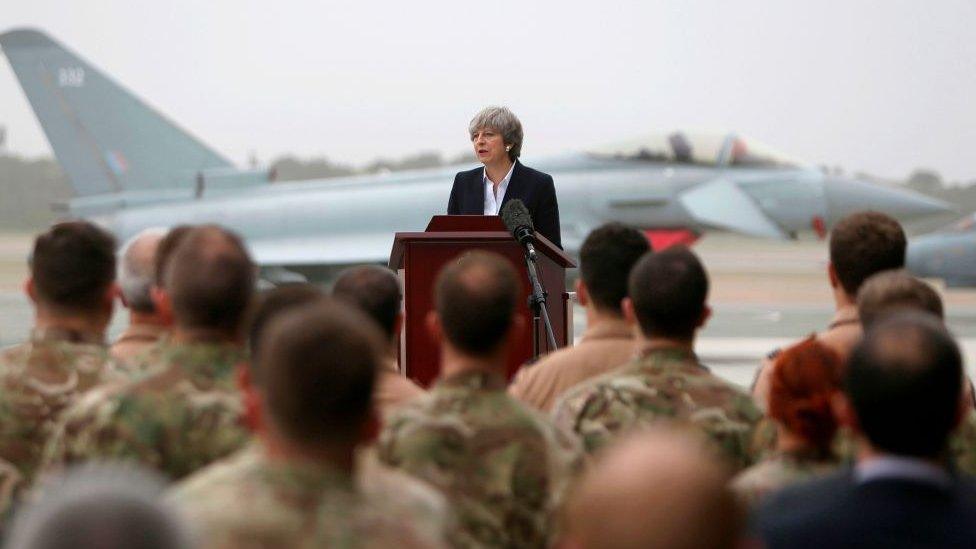
In Westminster Hall, proceedings open with a debate (9.30 - 11.00am) on the size and strength of the British armed forces, led by the Aldershot MP and former army officer Leo Docherty. This seems to be the latest in a series of robust interventions by backbenchers, alarmed by reports of the kind of cuts being considered by the Government to close the £2bn black hole in the Ministry of Defence budget, and keen to head off some of the options that have been leaked.
Consciously or otherwise, Mr Docherty's debate title echoes the Conservative manifesto commitment, last year, to maintain the size and strength of the armed forces. When he replied to the debate on this issue on Thursday 11th January, the Defence Minister Tobias Ellwood was so visibly uncomfortable, that another minister could be sent into bat by the government.
And watch out for Sir Vince Cable's debate (4.30 - 5.30pm) on public consultations on Heathrow airport - yet another example of the parliamentary heat rising around this issue as the moment for a decision on Heathrow expansion approaches.
My committee pick is the Brexit Committee hearing (9.15am) on the progress of the UK's negotiations on EU withdrawal, the regular update session with Brexit Secretary David Davis.
In the Lords (3.00pm) questions include the Lib Dem Lord Storey on safeguarding children who are not attending school - (there's a live private members bill at the moment on the regulation of home-schooling).
Then peers will polish off the third reading of the Sanctions and Anti-Money Laundering Bill before moving on to the detail of the Secure Tenancies (Victims of Domestic Abuse) Bill, a short, targeted Bill to ensure that if victims of domestic abuse who have a lifetime social tenancy need to flee their current home, they are able to retain their lifetime tenancy in their new social home.
Finally, there will be a short debate on sustainable water management in developing countries.
UPDATE: the Labour Whips have just tweeted that the Opposition Day debates will be on Refugees and Human Rights, and then on Carillion and the sustainability of the public sector outsourcing model.
Thursday
The Commons opens (9.30am) with Environment, Food and Rural Affairs questions, followed by mini-question times for the MPs who speak for the Church Commissioners, the House of Commons Commission, the Public Accounts Commission and the Speaker's Committee on the Electoral Commission
Two Backbench Business Committee debates follow. The first is a general debate on joint enterprise - the 300 years-old legal doctrine under which people associated with the perpetrators of a crime, can end up in the dock alongside them.
Labour MP Lucy Powell, who is leading the debate, argues that using joint enterprise allows the prosecution to lower the evidential bar, and depends mainly on a gang narrative which involves loose friendship groups or casual associations. "In the age of social media being a Facebook friend, or receiving a text from a perpetrator can be enough for someone to be charged and incarcerated for life," she says.
That is followed by a general debate on proscription of Hezbollah, led by Labour MP Joan Ryan. She will argue that Hezbollah is a terrorist organisation, driven by an anti-Semitic ideology, and has had a role in destabilising Lebanon, and fighting in Syria. She wants the Government to end its policy of only proscribing Hezbollah's so-called political wing.
In Westminster Hall (1.30pm) the Defence Committee Chair, the Conservative Dr Julian Lewis, leads a debate on his committee's report on investigations into fatalities in Northern Ireland involving British military personnel, which complained of "a vicious cycle of investigation and re-investigation that fails both former service personnel and the families of those who died," adding "It is morally indefensible for former service personnel to be caught in limbo, with the threat of investigation hanging over them."
The government responded by announcing it was consulting on a statute of limitations to limit such investigations, but Dr Lewis said he feared the MoD was "complacent" about the number of pending investigations. Watch out for his Conservative colleague Johnny Mercer, who chaired the sub-committee which looked at the conduct of investigations into historic allegations against service personnel.
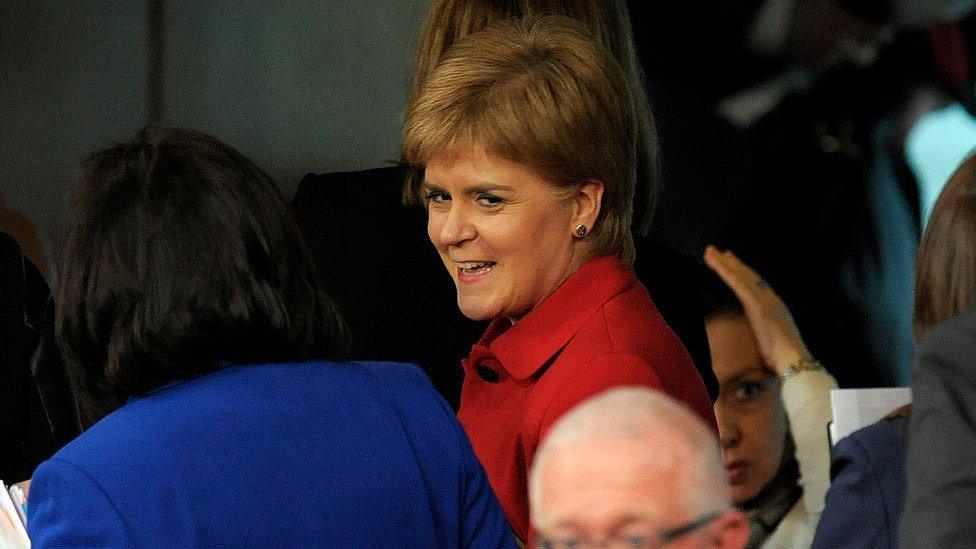
In the Lords (11.00am) watch out for the debate on "the role of the devolved administrations in the process of withdrawal from the EU and future opportunities for strengthening the union of the UK." This is interesting because it is led by Lord McInnes of Kilwinning, a close ally of the Scottish Conservative leader Ruth Davison, and these days the Scottish Tories are rather semi-detached, taking their lead from Ruth, not Theresa.
This could signal a bit of divergence from the Westminster leadership line, particularly on one of the most sensitive issues around the EU (Withdrawal) Bill, the delivery of EU powers to the Scottish Parliament and the Welsh Assembly.
The next debate is on the impact on front line social care of the Government's NHS plans and the delivery of services over the winter and the third, on evaluating innovative cancer treatments, making them available through the NHS and raising life expectancy for cancer patients, is particularly poignant, because it will be led by the Labour former cabinet minister and current cancer patient, Baroness Jowell.
Friday
The Commons is not sitting, but in the Lords (10.00am) peers will be debating a series of private members' bills
First comes the second reading of the Conscientious Objection (Medical Activities) Bill, external from the crossbencher, Baroness O'Loan - this would allow medical practitioners not to withdraw life-sustaining treatment or perform IVF or an abortion if they have a moral objection to the procedures
Then comes the Registration of Marriage Bill, external from the Bishop of St Albans, the Rt. Revd. Dr Alan Smith. This would give ministers the power to change the regulations around marriage certificates, which, at the moment, only have to include details of the father of the bride and groom, and not their mothers.
Finally there's the Open Skies Agreement (Membership) Bill, external from the Lib Dem Baroness Randerson, which would require British ministers to negotiate to maintain the UK's position in the agreement.